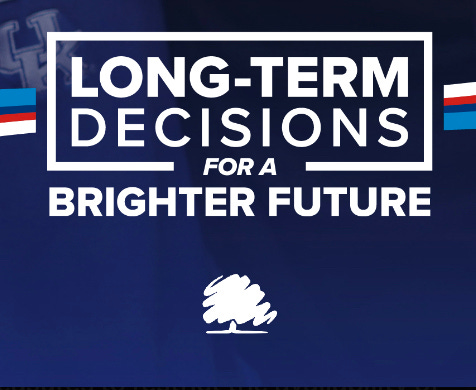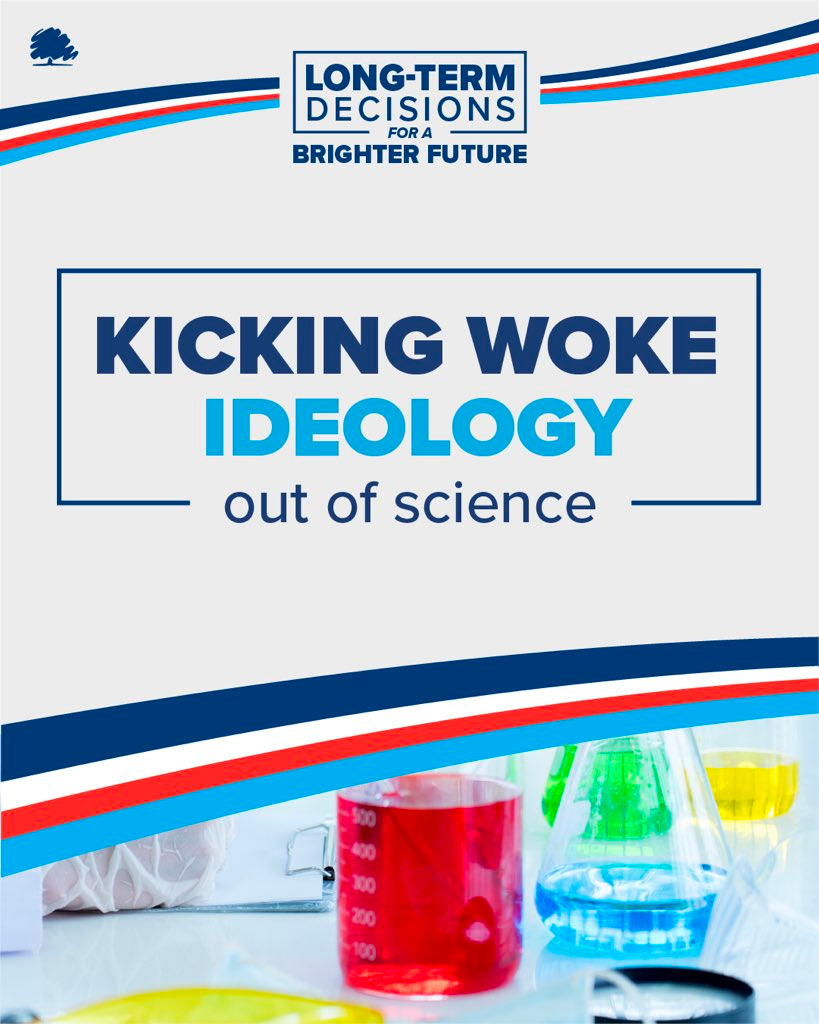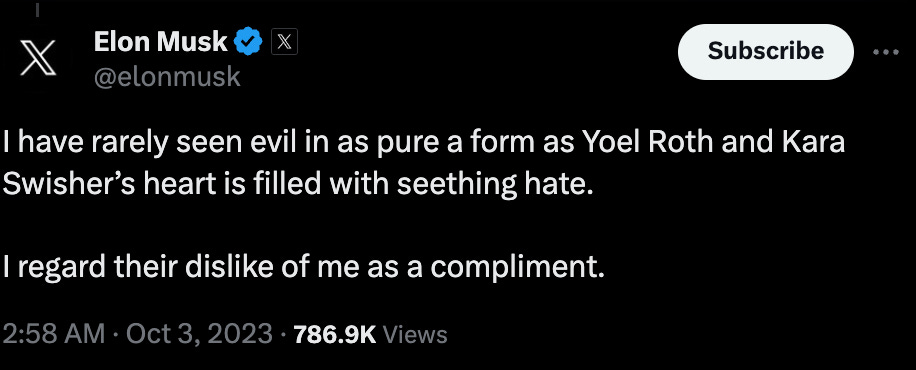Dear Reader
This week we’re all about Brevity, but without actually being concise. Learn to relax with simple breathing techniques, get people to listen by saying less, and what happens when you disagree with your boss if they are Elon Musk.
Quick #ad
Check out the 1 minute/5 minute and unedited versions of the AI + Marketing webinar, out now in BN Edition or a YouTube for the talking-only long version. We’re now booking AI strategy briefings and workshops for November and December. Email me or hello@brilliantnoise.com to find out more.
Worst slogan ever
The UK governing party’s incompetence accumulator has peaked in apparently not being able to get any copywriters to work for the party.
Evidence: the Conservative and Unionist Party of Great Britain’s 2023 conference strapline:
“Long-term decisions for better outcomes.”
The Sunak government is the third administration hitching a ride on the fruits of a General Election that was won on a three word slick slogan: Get Brexit Done (translation: just make this stop!, reality: Get Done In By Brexit).
Read expert commentary from marketing expert Alastair Duncan:
> It helps, as the American speechwriter William Safire wrote, if slogans have “rhyme, rhythm or alliteration to make them memorable.” They should be easy to say and capable of “rendering discourse extractable,” the strategist’s way of describing an audience chanting back and phrases entering popular culture. People can get behind slogans that have immediate meaning and capture a zeitgeist.
And a lament on it from the Tory magazine The Spectator:
> In seven words it captures nothing; the tagline appears to have been lifted from a PowerPoint presentation.
The non-pithy statement has been used to frame even weirder campaign messages:
Literally no one knows that that means.
4-7-8
If you need to calm down after that cascade of comms bombs, try 4-7-8 breathing.
This technique got me through the pandemic. It’s a simple way to turn off uncomfortable spells of insomnia or anxiety. It takes practice to get the full benefits, but it will do you good from the first time you try it.
Here’s an excerpt from an article in Glamour explaining how to do it:
>Once situated in the right environment, there’s one last thing someone can do to prepare. “Take a few conscious breaths and fully empty the lungs before beginning 4-7-8 breathing,” says [Thimela Garcia, a yoga expert]. “Despite it being a very simple exercise, it has a very specific way to be executed.” After that, it’s time for the main event. “Inhale through the nose for a count of four, hold the breath for seven, and then exhale forcefully for a count of eight through a pursed lip, making the whooshing sound and keeping the tip of the tongue on the tissue behind the top front teeth.”
There’s a lot of evidence to support deep breathing’s effectiveness and this technique in particular.
Here’s the chap who developed it to its current form explaining how to do it.
Reading: Writing for Busy Readers
Writing for busy readers is a step beyond a writing style guide as it pushes home the main point: shorter is better, almost always.
The extra heft to the argument is given by research data and experiments run by the horses to show that even change from 30 to 20 words can increase the likelihood that a message will be read. The emphasis is on understanding the reading experience from the moment that the reader gets the Opportunity to open the mail click on an article or respond to text. Strikingly, one example, involved a fundraising email where every other paragraph was deleted. Message lost some coherence as a whole But the outcome was undeniable more people donated to the shorter message. The explanation for this is that we put off by signs that a message will ask too much of us, even just cognitively.
I won’t be applying for lessons from the book to this newsletter. The verbiage is part of the deal and I think most people signed up for it know that. But for other newsletters and especially for email communications will be killing, my darlings left right and centre.
I created an AI bot with the Poe app that will critique your writing and even rewrite in a more concise style for you.
This is what it came up with instead of the previous section:
When writing for busy readers, it is vital to prioritise brevity and clarity. Research has shown that even a slight reduction in word count increases the chances of a message being read. Understanding the reader's experience from the moment they receive the communication is crucial. While the style of this newsletter may not require conciseness, in other forms of communication like newsletters and emails, cutting unnecessary content is essential. By tailoring the writing style to the audience, we can effectively capture their attention and convey the message.
Try it yourself here:
The “pure evil” and high drama of Twitter Execs
The most dramatic and fraught dialogue since Succession finished isn’t to be found in a drama but a podcast about tech. I’m serious.
Kara Swisher's On podcast from last week carries two interviews from the Code conference framed by some context and analysis from Swisher and . The first Yoel Roth, an academic who used to run Twitter's ethics and oversight efforts. The second is X’s CEO, Linda Yaccarino.
Roth says he had to sell his home and has been living with private security ever since a tweet from his former boss implied he was a paedophile.
Two things make this compelling:
There's the personal drama and tension of the two being next to one another.
The academic’s thesis – supported by Swisher's experience as a journalist – that the populist right in America is using intimidation and legal threats to silence critics and fact-based analyses.
Then there's the rank, dismal hypocrisy of one of the richest people in the world talking about freedom of speech while weaponizing his media platform against anyone who questions him or his interests.
IIn her interview Yaccarino sounds like she’s only just holding on to her anger at having to speak after Roth (a later addition to the conference programme.
Elon Musk commented on the Yoel Roth interview:
Listen to the whole podcast here.
This week I’m…
Watching
I can forgive frothy but flat is inexcusable. The third season looked like it was going somewhere, but an episode of pandemic flashbacks with lots of no-chemistry relationships in crisis was deadly dull. I hereby put The Morning Show (Apple TV) on notice.
Babylon Berlin (HBO / Now TV) is still crazy and amazing four seasons into its last days of Weimar German odyssey.
Cocaine Bear (streaming) is comedy horror fun, directed by Elizabeth Banks and featuring fine performances dusted down with coating high grade 80s nostalgia.
That’s all for this week. I’m off to an Apple Day celebration, literally the most English thing you will ever find me doing. Crumble, Morris Men, cider and folksinging in orchards. It’s as close as Brighton gets to being that village in Midsommar.
See you next week if I don’t get crowned King of the Apples and baked inside a giant crumble.
Antony
P.S. If you liked this letter, give it a little share for me.
P.P.S. #ad Check out the 1 minute/5 minute and unedited versions of the AI + Marketing webinar, out now in BN Edition or a YouTube for the talking-only long version. We’re now booking AI strategy briefings and workshops for November and December. Email me or hello@brilliantnoise.com if you’re interested.









